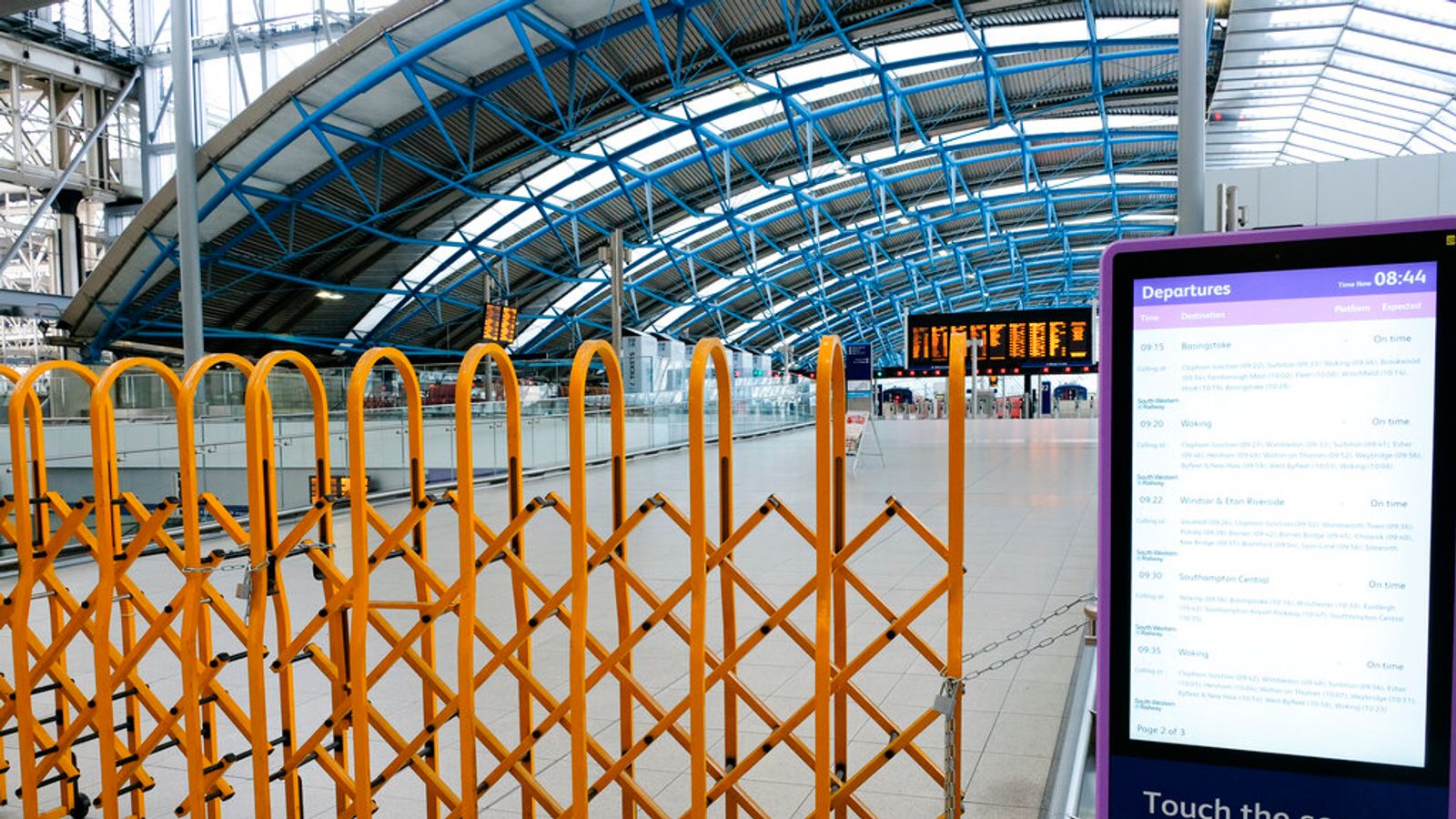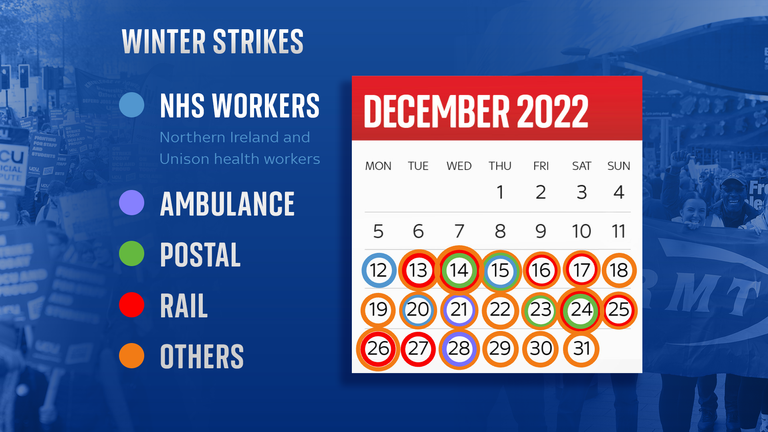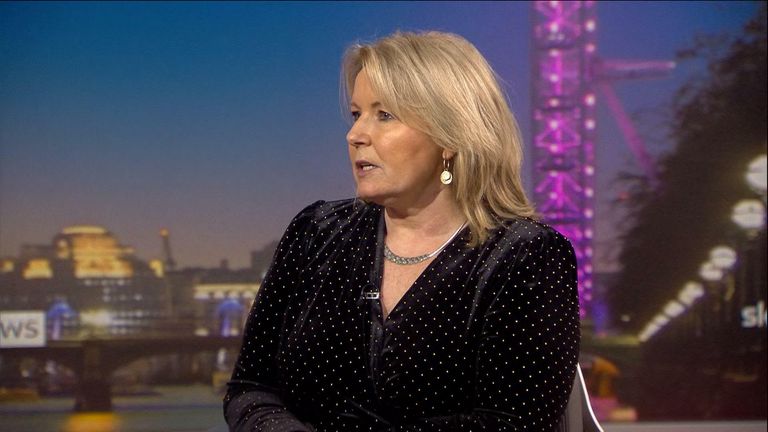The “tide is turning” in rail unions when it comes to pay offers on the table, Transport Secretary Mark Harper has claimed.
Members of the RMT rejected the latest offer from Network Rail yesterday by 64%.
The deal would have included a 5% and 4% pay rise over two years, but meant thousands of job losses down the track, a 50% cut in scheduled maintenance tasks and a 30% increase in unsocial hours.
However, Mr Harper said it had more support than previous offers on the table, urging the union to “look at it again, call off the strikes and accept what is a reasonable pay offer”.
Politics live: Widespread rail strikes begin across the country
Rail workers have staged another walk out today in the first of a raft of strike days in this month, covering 13, 14 and 16 and 17 December.
More strikes are also planned from 6pm on Christmas Eve to 5.59am on 27 December.
The RMT’s general secretary Mick Lynch accused the government of “refusing to lift a finger to prevent these strikes” and pledged his members would “continue their campaign for a square deal for workers, decent pay increases and good working conditions”.
But speaking to Sky News, Mr Harper said the government had “got to be fair to the taxpayer”, adding: “There isn’t a bottomless pit of money to go into the rail industry.”
He insisted the offer made to workers was “very fair and reasonable”, and pointed to the fact bosses of the TSSA union – which represents station staff – had already recommended it to their members.
“Even with the RMT’s very strong recommendation to their members to not accept the offer to turn it down, to reject it out of hand, we still saw nearly 40% of RMT members wanting to accept it,” said the transport secretary.
“So I think the tide is turning on opinion about whether these offers are reasonable or not, and therefore I hope the union will look at it again, call off the strikes and accept what is a reasonable pay offer.”
Mr Harper rejected accusations that he had added in caveats to the deal on terms and conditions, meaning members would have to accept having no staff on driverless trains – something the RMT is strongly against.
“I don’t want these strikes to take place at all,” he added. “They’re bad for passengers. They’re bad for businesses.”
But Labour’s Andrew Gwynne told Sky News it was “incumbent on the transport secretary to sit down and negotiate a deal”, and accused him of refusing to do just that.
“Ultimately the public will now be worried about whether their Christmas arrangements are in turmoil,” he added.
“The government’s really got to get a grip of this and that starts by sitting down, negotiating, meeting and coming up with some kind of compromise that both sides can live with.”
‘Sit down and listen’
Mr Gwynne also accused ministers of “letting” the nurses strikes go ahead later this month by refusing to negotiate over pay.
Health secretary Steve Barclay met the general secretary of the Royal College of Nursing, Pat Cullen, last night, with the RCN hoping he would move on a pay offer to avert the two days of industrial action on the cards.
But speaking to Sky News afterwards, Ms Cullen revealed he “was true to its word” and “would not talk to me about pay”, accusing him of “belligerence”.
Mr Harper defended the move when pressed on it this morning, saying: “We’ve got for the health service an independent pay review body that’s made a series of recommendations for people who work in the health service, including nurses who we value.
“So we’ve accepted all of their recommendations in full. The 19% pay rise that the nurses are asking for isn’t affordable. I don’t think it’s reasonable. And it would take money away from frontline health.”
But Labour’s Mr Gwynne said: “We’re not saying that we can afford what the unions are asking for, but a negotiation is just that. You sit down, you listen to the issues, you listen to the concerns on both sides. You come up with common areas to agree and ultimately come out with a deal.
“The government’s not doing that. We would do that. We would sit down with the the employers representatives and we would ensure that we averted these strikes.
“We didn’t have a single strike on the NHS under the last Labour government. There’s no reason why there should be one under this Conservative government.”


